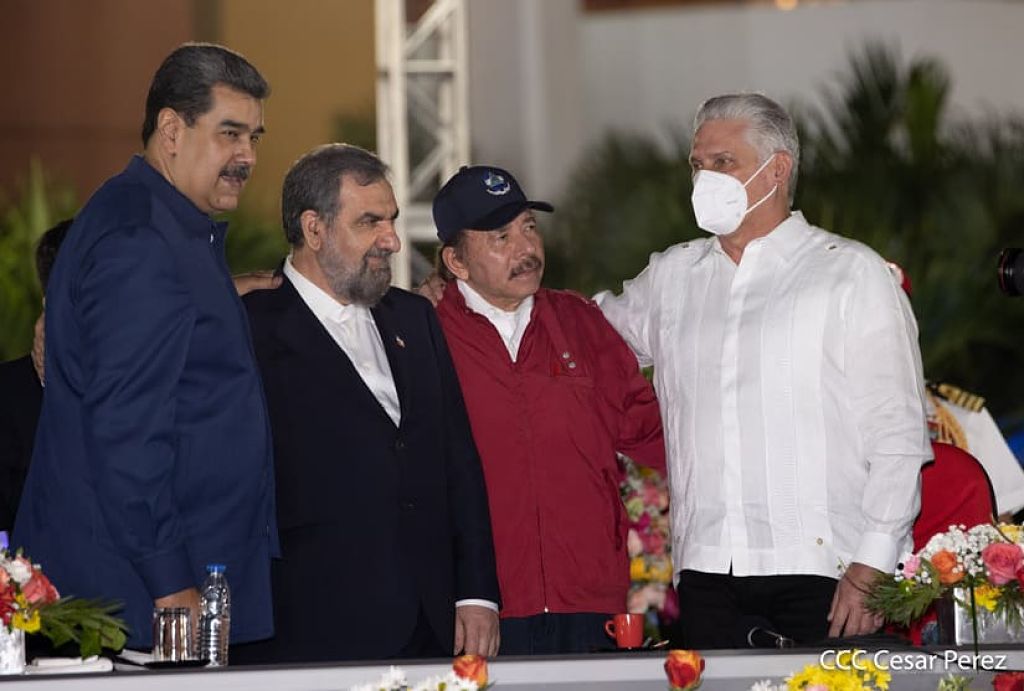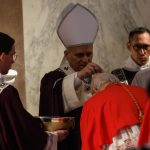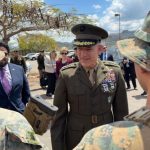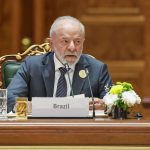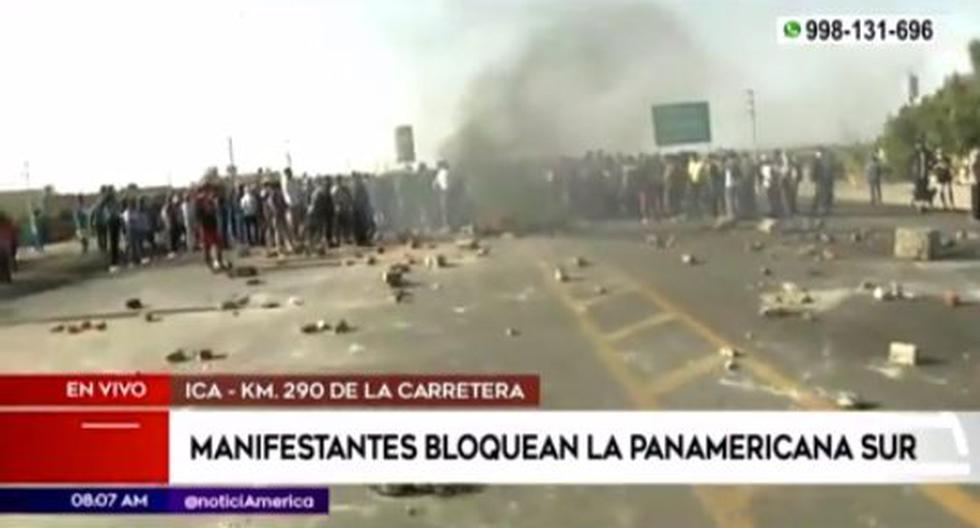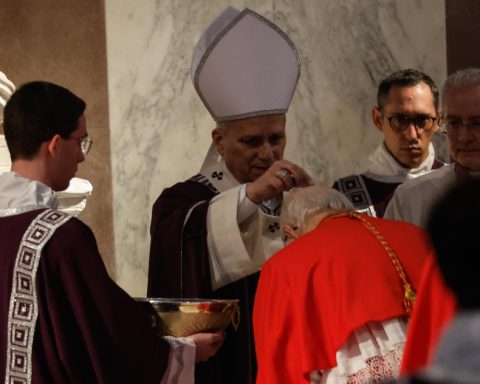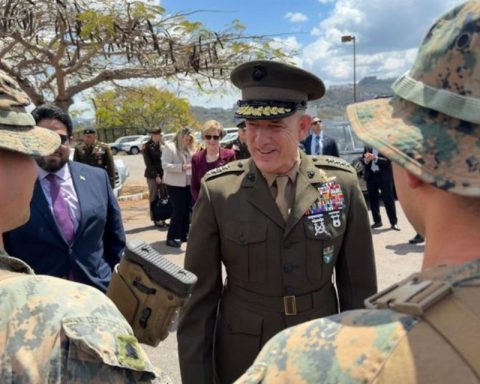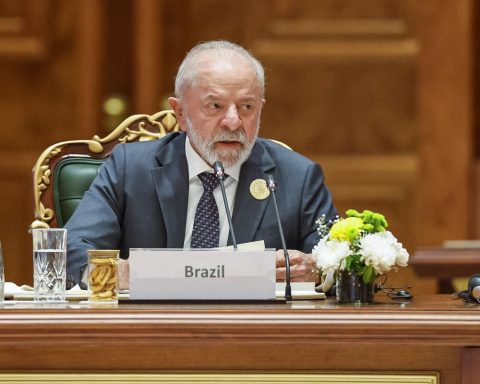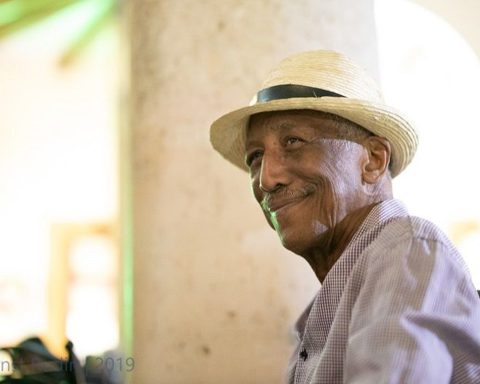The expulsion of the apostolic nuncio Waldemar Stanislaw Sommertag and then that of the head of the mission of the International Committee of the Red Cross (ICRC),thomas issdeepened in March the rupture of the regime of Daniel Ortega and Rosario Murillo with the international community.
Ramón Jáuregui, a former socialist European parliamentarian, considers that the expulsion of the pope’s representative and the official of a humanitarian organization such as the ICRC is a “new and definitive sign” that the Nicaraguan authorities burned “the ships of dialogue” with the sole objective of stay in power.
Jáuregui affirmed that Monsignor Sommertag was the closest diplomatic representative to the presidential couple and with the greatest influence on the subject of the dialogue, which means that the expulsion avoids any possibility of it and instead reaffirms the unequivocal will of the regime to continue in the power based on “rigged elections”.
Tensions with the international community have been growing in recent months. The Nicaraguan Foreign Ministry ordered in March the withdrawal of its ambassador to Spain, Charles Midence, arguing the continuous “interfering pressures and threats” to which the country was supposedly subjected.
In February, the Nicaraguan Executive also withdrew his credentials to the Colombian ambassador, Alfredo Rangel Suárez, accusing him of “offensively meddling in the internal affairs of the country”.
Until before these cases, the measure of the low level of diplomacy of the Ortegas were the insults of their former vice-chancellor Manuel Coronel Kautz, who described the Swedish ambassador Eva Zetterberg as a “devil” in 2008 or when he called the Netherlands a “paisucho”. year later.
On March 12, the government of Pope Francis assessed Sommertag’s expulsion as “serious and unjustified” and described it as a unilateral decision that did not “reflects the sentiments of the people of Nicaragua, profoundly Christian.”
“Bridges with foreign countries are being destroyed. By removing the nuncio, the relationship with the Vatican is weakened and now surely (it) is going to position itself more firmly with respect to what is happening with the Nicaraguan regime,” interpreted the former Argentine ambassador to Nicaragua, Marcelo Valle.
Valle said that Ortega’s isolation seeks absolute control so that there are no “external mirrors that can point him out” in terms of strengthening democracy and DD. HH., a commitment to which every State is obliged.
The Argentine diplomat pointed out that the country is experiencing a situation of clear institutional and social deterioration; with the population facing restrictions on individual liberties and harassment of the opposition. “Not only the country’s institutions have been undermined, but also human rights organizations that have wanted to favor investigation, reparation and justice,” he said.
They reflect to the world their own inner isolation
For the former United States Ambassador to Panama, John Feeleanda diplomat with a 28-year career in the State Department, Ortega is also isolated from his own people who reject the cruelty of the torturers in El Chipote, the prison in Managua denounced as a center where abuses are committed, according to relatives of political prisoners.
“It is a behavior rejected even by those who are still Sandinistas. So this isolation from your base is reflected in your approach to the world. Ortega knows that he is only welcome in three world capitals and so does not care about maintaining diplomatic or personal ties with foreign leaders. Like most dictators, he is going to die alone and forsaken,” Feeley said in an email to CONFIDENTIAL.
Feeley participated this week in a panel organized by the Wilson Center in Washington with the former Nicaraguan ambassador to the Organization of American States, Arthur McFields, about the complaints that the Nicaraguan made against the “dictatorship” on March 23.
In that appearance, Feeley addressed the closeness of the Ortega regime with Russia. “With (Vladimir) Putin what happens is that Ukraine is much more important to him than what happens in Managua. So all his military, political and diplomatic efforts are concentrated in Ukraine. Daniel Ortega and Rosario Murillo can wait a long time for the phone to be answered in Moscow,” he stated. former US ambassador.
However, Jáuregui affirms that, given the context of the Russian invasion, it is difficult to find a space to reiterate the denunciation of the repression perpetrated in Nicaragua, which currently occupies an “irrelevant” level in the world.
“There is a certain passivity; an attitude, a little, of lowering one’s arms, as is often said, in the face of a government that represses all options for freedom and democracy. Therefore, there is a kind of resignation of the international community that is being maintained in these difficult months and days that Europe is experiencing, ”he lamented.
The former parliamentarian insisted that the international community has always found it difficult to take a leap in the sanctions on economic and commercial relations with the country, because everyone knows that a punishment in this sense would harm the people. Unfortunately at this time, he accepted it, he has a pessimistic outlook on the Nicaraguan future.
They demand isolation that is not rhetorical
For his part, a Nicaraguan diplomat commented anonymously that the recognition of the “illegitimacy” of the elections was a fact of great importance and shows how the regime is isolated by its clumsiness, but also added that it has not led to ruptures of diplomatic relations.
“The convictions have also not translated into effective opposition to the granting of loans to the dictatorship by international financial organizations. In this sense, it is necessary to evaluate the impact and effectiveness of sanctions, examine evasion mechanisms, design new pressure mechanisms and, in general, work so that isolation is not just rhetorical”, he suggested.
The specialist indicated that there will hardly be changes if the pressure is not effective, with which the regime will simply prolong its “agony.” Regarding the expulsion of the nuncio and the representative of the ICRC, he added that both characters leave a great void that is difficult to fill and their departure aggravates the situation of those sentenced without foundation: 177 political prisoners.
Former Ambassador Valle argued that the change must come from within, not from without. “Everything must be resolved from Nicaragua and in Nicaragua. That is why the primary appeal is for unity and for there to be a change in various sectors of power where a crack has not yet been seen. I am referring to the Army, the Police and the business elite that, in some way, sustain a failed regime.”
The expulsions of diplomats adds to the insults uttered in recent months by the Ministry of Foreign Affairs against countries like the United States, Canada, Costa Rica, Colombia and Spain. The international community has also sanctioned those close to the Nicaraguan ruler, led by the first lady and vice president Rosario Murillo, for human rights abuses and corruption.
